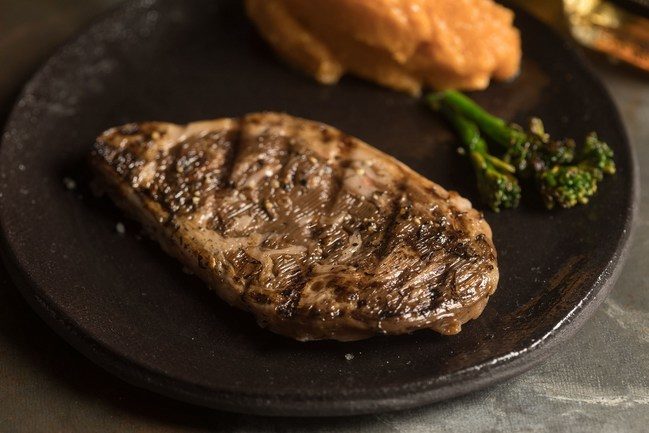REHOVOT, ISRAEL – Aleph Farms Ltd. and the Israel Institute of Technology’s faculty of biomedical engineering at the Technion, the university’s engineering, architecture and science college, successfully cultivated the world's first slaughter-free ribeye steak containing real muscle, fat, and a vascular-like system similar to a traditional ribeye from a slaughtered cow. Scientists used three-dimensional (3D) bioprinting technology and real cow cells without genetic engineering and immortalization.
Aleph Farms unveiled the world's first cultivated thin-cut steak in 2018, which did not utilize 3D bioprinting. According to the company, it can now produce any type of steak and plans to expand its portfolio of quality meat products.
Aleph Farms' 3D bioprinting technology differs from conventional 3D printing by printing actual living cells that are incubated to grow, differentiate and interact to create the texture and qualities of a real steak. The proprietary system is similar to the vascularization that occurs naturally in tissues and enables the perfusion of nutrients across the thicker tissue and provides the steak a similar shape and structure to its original form as found in livestock before and during cooking.
“This breakthrough reflects an artistic expression of the scientific expertise of our team,” said Didier Toubia, co-founder and chief executive officer of Aleph Farms. “I am blessed to work with some of the greatest people in this industry. We recognize some consumers will crave thicker and fattier cuts of meat. This accomplishment represents our commitment to meeting our consumer’s unique preferences and taste buds, and we will continue to progressively diversify our offerings. Additional meat designs will drive a larger impact in the mid and long term. This milestone, for me, marks a major leap in fulfilling our vision of leading a global food system transition toward a more sustainable, equitable and secure world.”
Technion professor, Shulamit Levenberg, Aleph's co-founder and chief scientific advisor, added, “With the realization of this milestone, we have broken the barriers to introducing new levels of variety into the cultivated meat cuts we can now produce. As we look into the future of 3D bioprinting, the opportunities are endless.”
Levenberg is considered a global leader in tissue engineering and has amassed over two decades of research in the field at the Massachusetts Institute of Technology (MIT) and the Technion. Levenberg is also the former Dean of the Biomedical Engineering Faculty at the Technion.

